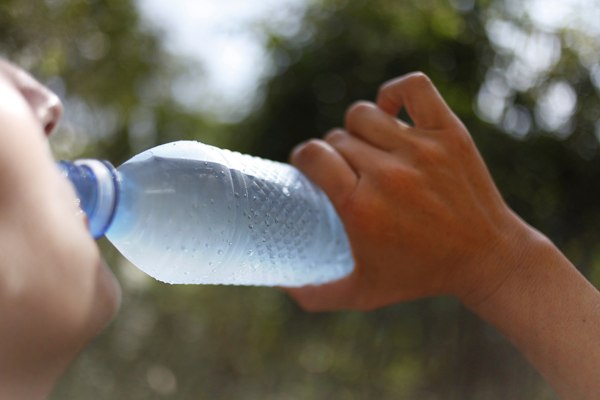
A lack or an excess of water — both conditions can cause discomfort and can even be fatal. Over 65% of the human body consists of water. Therefore, water is a vital component of our bodies and our diet, making us very susceptible to changes in its content.
Our water requirements depend on our fluid losses. Some losses are quite obvious, for example through urine, while others are less noticeable, such as perspiration, breathing and vomiting or diarrhea. As a result, people who spend all day on the beach under the sun or in the water, those who work outside or do agricultural work and those who get a lot of exercise should drink more water than people who stay at home watching TV or who work at their desk all day.
The popular belief is that people should drink at least eight glasses of water a day. However, conditions such as hot weather, a humid environment and physical activity increase our water requirements. If you generally don’t feel thirsty and your urine is clear or light-colored, you are hydrating properly. On the other hand, if you are always thirsty and produce too little or dark urine, you may need to hydrate more.
But do not overdo it! Drinking too much water— more than can be removed by the body— can lead to water intoxication or poisoning (also known as hyperhydration). Headaches, abdominal pain, dizziness, vomiting and fainting characterize this condition. The amount of water that can be removed from the organism will depend mainly on heart and kidney function, as well as on the hypophysis (a pea-sized gland located at the base of the brain that secretes hormones that regulate homeostasis). Unlike dehydration, which can be a common condition, water intoxication is rare but people should still be aware of it and avoid it, especially endurance athletes.
Conversely, dehydration is the excessive loss of body water and fluids, causing nausea, headache, dry mouth, darkened and decreased urine, physical and mental fatigue and decreased performance. Children and elderly people are more vulnerable to dehydration since their bodies absorb water more quickly. Severe dehydration is a medical emergency and can be fatal.
If you visit or live in tropical, humid areas such as our beaches, always keep in mind that your fluid requirements will increase significantly while your body adjusts. Drink plenty of water and make sure it is safe for drinking. When in doubt, boil it first.
Why drink water and not soda, sports drinks or fruit juice? Water is a pure, essential substance that offers many benefits. First, it does not contain sugar. On the contrary, most commercially available fruit juice beverages have large amounts of sugar, and soda can contain as much as seven teaspoons of sugar per can! In addition, water has zero calories (even sports drinks contain calories) and no additional ingredients such as additives, colorants or preservatives, among others. If you opt for a fruit juice beverage, make sure it is as natural as possible, extracted directly from fruits and preferably with little or no added sugar, so you can enjoy all its benefits and pure taste!







Comments